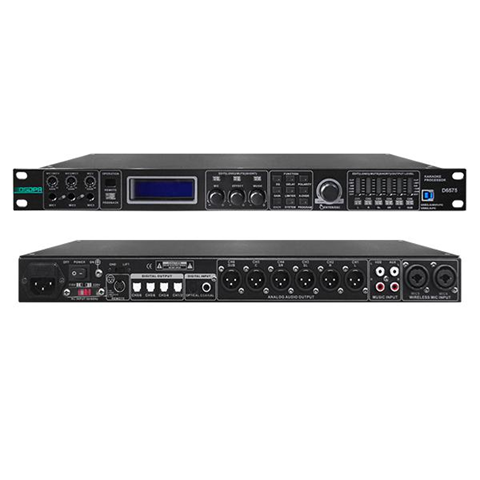In today’s world of advanced audio systems, clarity and precision matter more than ever. Whether it’s in a home theater, a car, or a professional recording studio, the goal is always the same sound that is crisp, balanced, and tailored to the environment. That’s where Digital Sound Processors (DSPs) come in.
What is a Digital Sound Processor?
A DSP is an electronic device that manipulates audio signals digitally. Unlike analog sound processors, which rely on physical circuitry, DSPs use algorithms to fine-tune sound. This allows them to adjust frequencies, control time alignment, eliminate distortion, and improve overall sound quality with remarkable accuracy.
How Does a DSP Work?
When audio enters a DSP, it is converted from an analog signal into digital data. This data can then be analyzed, modified, and optimized before being sent back out as sound. Through this process, users can control:
-
Equalization (EQ): Balancing bass, mids, and treble for the perfect tone.
-
Time Alignment: Ensuring all speakers deliver sound at the same time for a cohesive listening experience.
-
Crossover Management: Directing specific frequency ranges to the appropriate speakers (for example, bass to subwoofers and highs to tweeters).
-
Signal Processing: Removing noise or enhancing certain effects depending on the setup.
Benefits of Using a DSP
-
Personalized Sound: Adjust settings to match your preferences or the acoustics of your space.
-
Improved Clarity: Reduce distortion and interference for a cleaner sound.
-
Flexibility: Works across a wide range of audio systems, from cars to concert halls.
-
Professional Control: Offers detailed customization that goes beyond the standard settings found in most audio equipment.
Where Are DSPs Used?
You’ll find DSPs in many everyday technologies, including:
-
Car Audio Systems – to overcome road noise and speaker placement challenges.
-
Home Theaters – for immersive surround sound experiences.
-
Professional Studios – where precise control is essential for mixing and mastering.
-
Smart Devices – such as smartphones and smart speakers, improving sound quality in compact hardware.
Final Thoughts
A Digital Sound Processor is more than just a tool for audio enthusiasts—it’s a gateway to achieving sound that matches the environment and listener’s taste. Whether you’re setting up a high-end car system or fine-tuning a home theater, a DSP gives you the power to experience sound exactly the way it was meant to be heard.

